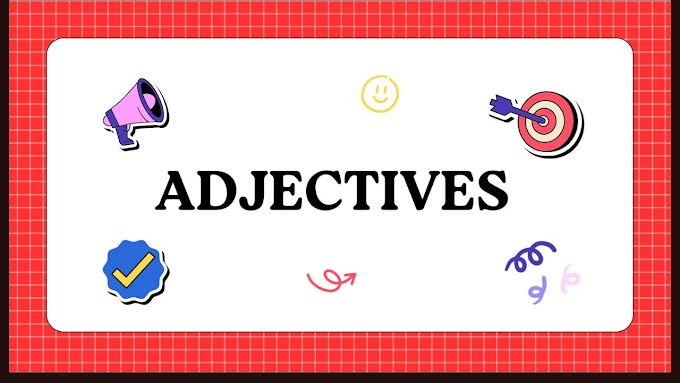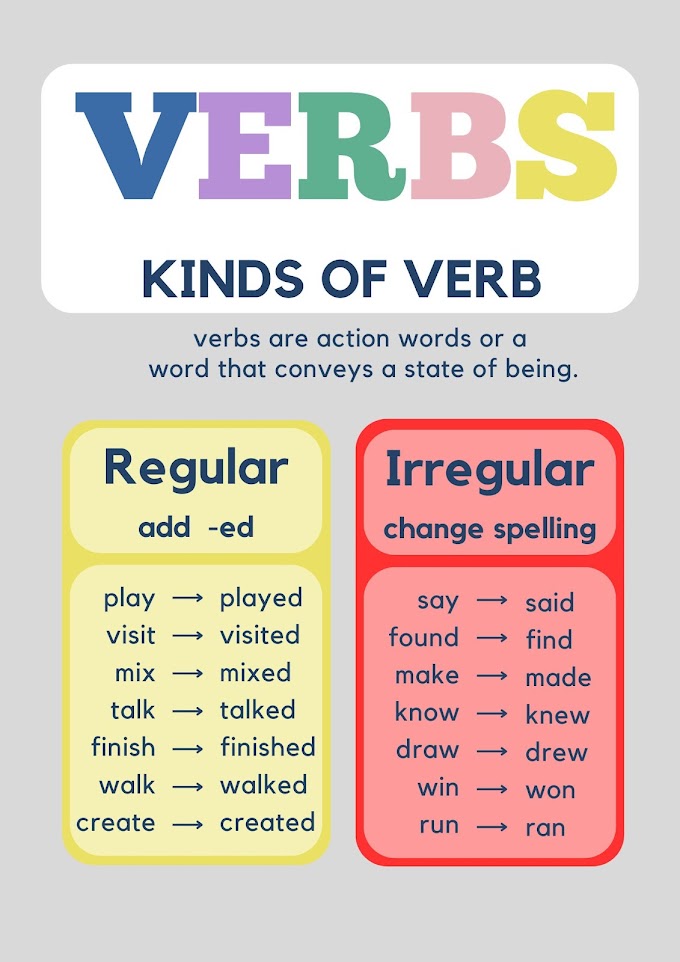Unit 7
Link Lesson: The Invention of
Vita-Wonk
Comprehension
A. Read the poem and answers the questions that follow.
Thomas Alva Edison,
Almost unusual boy,
Never really bothered much
With any childish toy.
His teacher thought he couldn't
And sent him home from school,
But Tommy's
mother knew for sure
He wasn't any
fool.
He
worked as newsboy on a train.
He
learned to telegraph,
The
way he concentrated
Made
some people laugh.
Thomas Alva Edison
Had inventions by the score
In his laboratory
He kept inventing more.
1.In what way was Thomas Alva Edison an
unusual boy?
Ans.Thomas
Alva Edison was an unusual boy because he never bothered much with any childish toy.
2.Why did the teacher send Thomas Alva Edison
home?
Ans The
teacher sent Thomas Alva Edison home because he thought that he couldnot study.
3. How did Thomas Alva Edison react?
Ans.Thomas
Alva Edison worked as a newsboy on a train and he learned to telegraph.
4.
What made people laugh at Thomas Alva Edison?
Ans.The way Thomas
Alva Edison concentrated made poeple laugh.
5.
What do you think the word score in stanza 4 means?
Ans.Score means to succeed in an activity or to achieve something.
Working with Language
Vocabulary
A. Words
having similar sounds.
A h Homophone is
a word that sounds the same as another word but has its own spellings and meaning.
Fill in the blanks with the correct option
from the brackets.
1. On my birthday my father presented me a new shirt.
(knew/new)
2. We must grate carrots to
prepare a sweet dish. (great/grate)
3. Fir trees
are found in cold countries. (fir/fur)
4. My grandmother tells me a tale every night.
(tail/tale)
5. I saw a film on a scary witch. (which/witch)
6. My mother bought a hare for me. (hair/hare)
7. I am fond of bathing in the sea.
(see/sea)
8. Rohan has two dogs as his pets.
(too/two)
9. My pen is very dear to
me. (dear/deer)
Grammar
A. Fill in the blanks with the appropriate form of the adjectives given in the brackets.
1. Iron is more useful than
any other metal.(useful)
2 Tiger is the most ferocious
of all animals.(ferocious)
3.Shyam is my best friend. (good)
4.May is hotter than
any other month.(hot)
5.Paris is a bigger city than
London.(big)
6.Ishant is the tallest boy in the class.(tall)
7. Rita is the most studious girl in our class.(studious)
8. This knife is not very sharp. Have you got a sharper one? (sharp)
9. His house is closer to
school than mine.(closer)
10. He runs faster than me.(fast)
B. Adverbs: Read the following sentences. The
words given in bold are adverbs. They
tell us more about verbs.
The girls cheered loudly. (adverb of manner)
She met me there. (adverb of place)
The school will remain closed tomorrow. (adverb of time)
My mother always gets up early. (adverb of frequency)
Underline the adverbs in the following
sentences and say whether they are adverbs of manner, time, place or frequency.
1. The horse galloped quickly. (adverb of
manner)
2 She searched for her necklace everywhere. (adverb
of place)
3. Will you please wait outside? (adverb of
place)
4. Our parents love us dearly. (adverb of
manner)
5. The old man walked slowly. (adverb of
manner)
6.The play will start now. (adverb
of time)
7. The wound was painful and she cried noisily. (adverb of
manner)
8. He often goes to the club. (adverb of frequency)
9. Priyanka dances gracefully. (adverb
of manner)
10. My friends will come soon. (adverb
of time)
Dictionary practice
A dendrochronologist is a scientist who studies trees and finds out how
old they are.
A. Consult dictionary and find the meaning
of the following words.
1. Anthropologist - A person who studies human origins, societies, and cultures.
2. Geologist - A person who studies the earth.
3. Pathologist - A person who studies pathology
4. Journalist - A person who writes for newspapers or magazines
5.Physicist - A person who studies
Anthropology
fan-through-pol-uh-jin. the study of
human origins, societies, and cultures.. DERIVATIVES anthropological adj. anthropologist n. ORIGIN Greek Anthropos human being
Geology 1 the science which deals with
the physical structure and substance of the earth. 2 the geological features of a district,
DERIVATS geological adj geologistn
Journalist n. a person who
writes for news papers or magazines or prepares news or features to be
broadcast on radio or television, DERIVATIVES Journalistic adj.
Pathology n 1 the branch of medicine concerned with the causes
and effects of diseases. 2 the typical
behaviour of a disease. DERIVATIVES
pathologist.
Physics. n. 1 the branch of science concerned with the
nature and properties of matter and energy.
2 the physical properties and nature of something DERIVATIVES
physicist n.. ORIGIN Latin physica 'natural things.
Dictionary Practice
writing:composition
A. Here are some steps that are used to make paper from
trees.
Rearrange the sentences in correct order. Take help from the hints given.
Hints: (1) Debarking (2) Chipping (3) Pulping
(4) Bleaching (5) Paper machine (5) Blade coater (7) Super calendar (8) Sheet
converting.
1. In paper machines, water is drained,
squeezed and then a press coater applies a light coating of starch &
minerals. Finally it is dried again.
2 A large rotating knife goes in circles and
cuts the logs into chips.
3. Sheet converting is the last stage in which
paper rolls are cut into sheets.
4. Ablade coater puts different coatings on
the paper.
5. The bark from trees must be removed before
the wood can be used for paper making.
6.The super calendering machine, rolls the
paper under a lot of pressure and heat.
7. The pulping process is important in
producing the product we know as paper.
8. After the pulping process, the paper is
bleached.
Ans.
1. The bark from trees must be removed before the wood can be used for
paper making.
2. A large rotating knife goes in circles and cuts the
logs into chips.
3. The pulping process is important in producing the product we know
as paper.
4. After the pulping process, the paper is bleached.
5.The super calendering machine, rolls the paper under a lot of
pressure and heat.
6. Ablade coater puts different coatings on the paper.
7. In paper machines, water is drained, squeezed and then a press
coater applies a light coating of starch & minerals. Finally it is dried again.
8. Sheet converting is the last stage in which paper rolls are cut
into sheets.
B.
What are the do's and don'ts to save trees.
Do's Don't
1.plant more trees Don’t cut trees
2. Use less paper Don’t waste paper
3. Buy recycled paper products Don’t over-fertilize.
4.Reuse
cartons and gift wrapping paper. Don’t plant large trees in small areas.
5.
Do plant for energy conservation. Do not use paper towels and tissues


.png)







.png)




